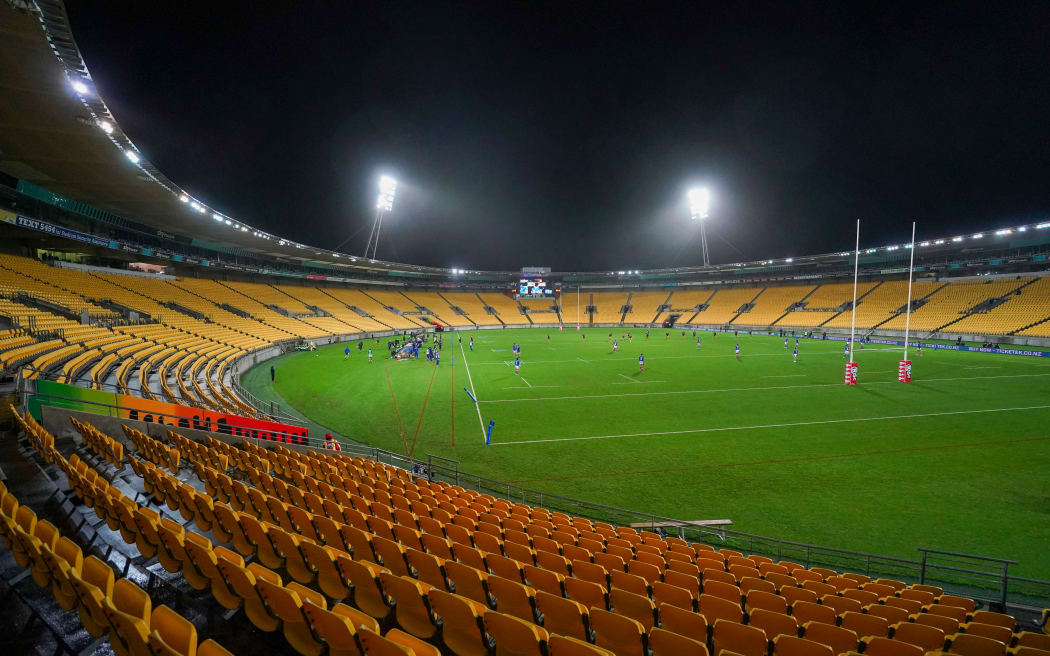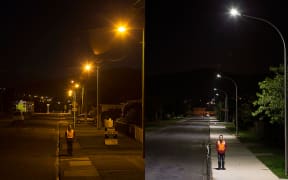
Sky Stadium is to get 6000 energy efficient light bulbs which are expected to reduce carbon dioxide emissions by 61 tonnes each year. Photo: John Cowpland / www.photosport.nz
More than 6000 energy efficient light bulbs are set to be installed at Sky Stadium in Wellington, after the grant application was partially approved by the regional council.
The Wellington Regional Stadium Trust will receive $750,000 to partly fund more than 6000 LEDs to lower its carbon footprint.
The money is coming from the council's Low Carbon Acceleration Fund (LCAF), which supports projects that reduce Greater Wellington's carbon footprint.
The stadium, which is partly owned by the regional council, will fund the rest.
Greater Wellington Climate Committee chair and stadium trustee Penny Gaylor said the lighting project would help the council reach its own goal of becoming carbon neutral by 2030.
The lights were expected to reduce carbon dioxide emissions by 61 tonnes each year, she said.
Sky Stadium chief executive Shane Harmon said the lighting project would also reduce costs.
"In a separate project, the stadium's tower lights are currently being upgraded with LEDs, which will massively cut peak electricity demand," he said.
"By replacing the remaining building lights with LEDs, we could save close to $100,000 each year in energy and maintenance costs."
Other projects
The regional council also agreed to allow CentrePort to apply for money from the LCAF, and approved a grant to the council's own public transport wing, Metlink, for a solar power generation project.
Metlink applied for $266,651 to install a solar photovoltaic system on the roof of Masterton train station. The system is expected to provide more than 100 percent of the station's electricity needs, which are currently about 131 MWh each year.
After excess power was sold back into the national grid, it was estimated the project would generate more than $600,000 in electricity cost savings and sales revenue over 25 years.
The project would serve as a trial for future solar power generation from the roofs of other stations and council assets.




